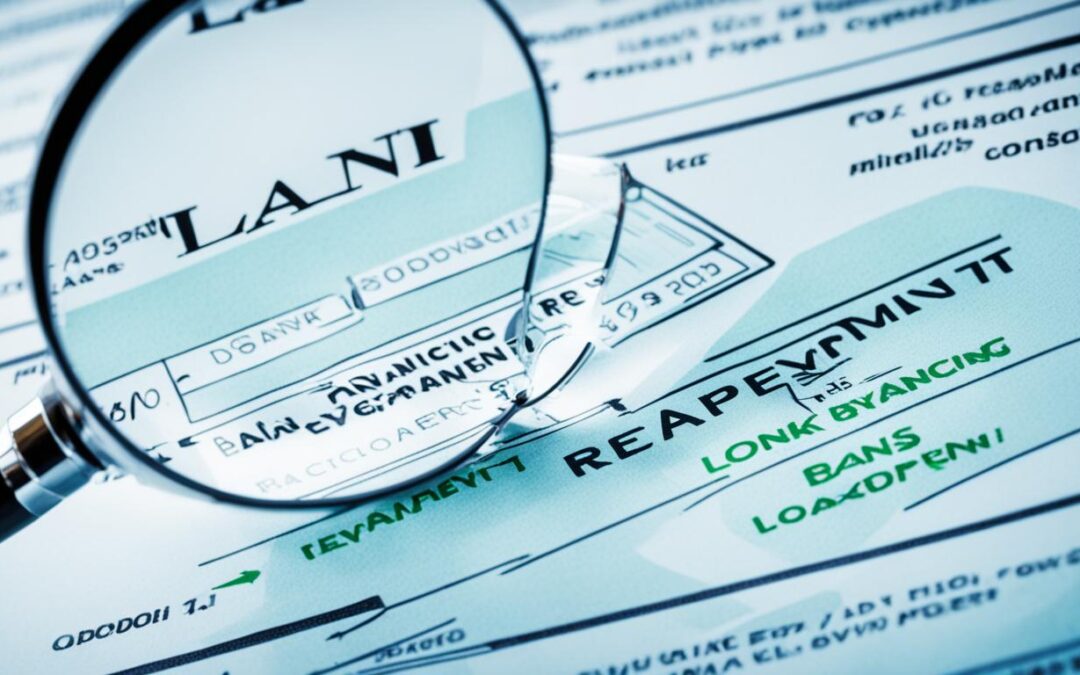Are you in the market for a new car? Understanding the details of car financing and loans is essential for making informed decisions. Navigating the world of auto finance can be complex, but fear not! We’re here to help you decode the mystery.
When it comes to car loans, there are a few key factors to consider. First, let’s talk about auto loan rates. These rates determine how much interest you’ll be paying on your loan. But how are they calculated? Well, a variety of factors come into play, including your financial details and credit score. Whether you’re buying a new or used car also impacts the rate you’ll receive.
In addition to interest rates, the down payment you make can affect your loan. A larger down payment can lower your monthly payments and even shorten the loan period. It’s important to crunch the numbers and find the sweet spot that works for your budget and goals.
Before signing on the dotted line, make sure to carefully read and understand all the terms and conditions of your loan. It’s crucial to be aware of any hidden fees or clauses that may impact your financial situation down the road.
To help you visualize the process, here’s an illustrative image of a car loan:
Factors Influencing Credit Approval and Loan Amount
When applying for a loan, understanding the factors that influence credit approval and loan amount is crucial. Lenders take into account several key aspects, known as the five Cs of credit: character, capacity, capital, collateral, and conditions.
1. Character: Lenders assess your character by evaluating your financial responsibility. They review your credit history, looking for a track record of timely payments and responsible borrowing.
2. Capacity: Your capacity refers to your ability to repay the loan. Lenders analyze your income, employment stability, and existing debt obligations to determine whether you have the financial means to meet the loan requirements.
3. Capital: Capital represents the assets you possess. Lenders consider your savings, investments, and other valuable possessions to evaluate your financial strength and assess the loan risk.
4. Collateral: Collateral serves as security for the loan. It is an asset that borrowers pledge to the lender to secure the loan, such as a car or property. Collateral provides lenders with a safety net in case of default.
5. Conditions: The external conditions include factors beyond the borrower’s control, such as the overall economic climate, interest rates, and industry-specific circumstances. These conditions can impact loan approvals and terms.
When evaluating creditworthiness, lenders also review your credit score, income, outstanding debts, and assets. Building a good credit score, maintaining stable employment and income, owning valuable assets, and being mindful of market conditions can increase your chances of credit approval and a higher loan amount.
Remember, understanding the factors that lenders consider when reviewing loan applications can help you prepare and present a strong case for credit approval. By proactively addressing these factors, you can improve your chances of securing a loan that meets your needs.
Guarantor Loans: A Lifeline for Bad Credit Borrowers
If you have bad credit and struggle to secure traditional financing, guarantor loans can be a lifeline in times of financial need. These loans offer a viable solution for individuals facing urgent expenses, such as car repairs or medical emergencies, despite their credit challenges.
A guarantor loan requires a trusted individual with good credit to co-sign the loan agreement and take responsibility for repayment in case the borrower defaults. This added layer of financial support gives lenders confidence and increases the likelihood of loan approval, even with bad credit.
Guarantor loans provide much-needed financial assistance to those who may otherwise be denied access to credit. They offer a way for individuals with bad credit to obtain the funds they need, ensuring they don’t have to bear the burden of financial stress alone.
However, before proceeding with a guarantor loan, it’s essential to carefully consider the hidden costs and risks associated with these types of loans. While they can provide relief in the short term, it’s crucial to evaluate the long-term financial implications and ensure that both the borrower and the guarantor fully understand their responsibilities.
With proper diligence and responsible financial management, guarantor loans can serve as a lifeline, helping bad credit borrowers access the financial assistance they need and regain control over their financial future.
Pros and Cons of Guarantor Loans
| Pros | Cons |
|---|---|
| Accessible financing option for individuals with bad credit | Hidden costs and fees |
| Increased chances of loan approval | Risk for the guarantor if the borrower defaults |
| Opportunity to rebuild credit history | Potential strain on the guarantor’s relationship with the borrower |
| Flexible loan terms and repayment options | Greater responsibility and financial obligations for the guarantor |
Navigating Medical Expenses with Medical Loans
Medical bills can be overwhelming, both emotionally and financially. However, there is a solution to help you manage these expenses without sacrificing your financial well-being. Medical loans offer accessible financing options specifically designed for individuals facing unexpected medical costs.
With a medical loan, you can conveniently pay for medical treatments, surgeries, consultations, and other healthcare expenses over a predetermined period, easing the financial burden. These loans provide a lifeline when you need urgent medical assistance, ensuring that you can get the medical attention you require without worrying about immediate payment.
Understanding the terms and conditions of medical loans is essential to make informed decisions. Exploring options like low-interest rates and flexible repayment plans can help you navigate medical expenses more effectively and minimize the impact on your overall financial situation.
Benefits of Medical Loans:
- Accessible Financing: Medical loans provide a practical solution for individuals who may not have sufficient savings or immediate access to funds to cover medical expenses.
- Flexible Repayment: These loans offer flexible repayment options customized to fit your budget, allowing you to make manageable monthly payments over time.
- Lower Interest Rates: Medical loans often come with lower interest rates compared to credit cards or other forms of unsecured loans, saving you money in the long run.
- Quick and Easy: The application process for medical loans is typically straightforward, and funds can be made available quickly, ensuring prompt access to the medical care you need.
By taking advantage of medical loans, you can focus on your health and well-being without worrying about the financial strain of medical expenses. As with any loan, it is important to carefully review the terms and conditions, ensuring that you are comfortable with the repayment terms and any associated fees.
When faced with unexpected medical bills, remember that medical loans can be a valuable tool in helping you manage the financial aspects of your healthcare journey. Take control of your medical expenses and prioritize your well-being.
Getting Rid of Debt: A Journey to Financial Freedom
Debt can be a burden that weighs you down and limits your financial freedom. But take heart, because with the right strategy and determination, you can overcome your debt and achieve financial freedom.
One of the first steps in your journey is creating a debt management plan. Start by evaluating your current financial situation and identifying all your debts. This includes credit card balances, loans, and any other outstanding obligations. Once you have a clear picture of your debt, you can prioritize your repayment strategy.
Creating a budget is an essential part of managing your debt. Take a thorough look at your income and expenses to determine how much you can allocate towards debt repayment each month. By making conscious choices about your spending and cutting back on non-essential expenses, you can free up more money to put towards paying off your debt.
When it comes to repaying your debt, it’s important to prioritize. Focus on paying off high-interest debts first, as they can accumulate quickly and keep you trapped in a cycle of debt. Consider strategies like the debt snowball method, where you pay off smaller debts first to gain momentum and motivation.
Negotiating with your creditors can also be an effective way to manage your debt. Reach out to them and explore options for lower interest rates, extended payment terms, or even debt settlements. Many creditors are willing to work with you to find a mutually beneficial solution.
If you find yourself overwhelmed with debt and struggling to make progress, seeking professional help can be a game-changer. Financial counseling services can provide guidance and support in developing a repayment plan tailored to your unique situation. Additionally, debt consolidation may be an option to simplify your payments and potentially reduce interest rates.
Remember, getting rid of debt takes time and commitment. It’s a journey that requires discipline and perseverance. But as you chip away at your debt and make steady progress, you’ll experience the freedom and peace of mind that come with financial stability.

Demystifying Delinquent Loans and Their Implications
Delinquent loans can be a source of confusion and concern for borrowers, but understanding their meaning and implications is crucial in maintaining your financial well-being. Simply put, delinquent loans refer to loans on which payments are overdue. When you fail to make timely payments on your loans, it can lead to a series of financial consequences.
One of the immediate consequences of a delinquent loan is the imposition of penalties. Lenders typically charge late fees or additional interest on overdue payments, increasing the total amount you owe. Moreover, delinquency can negatively impact your credit score, making it harder for you to secure future loans or obtain favorable interest rates on new credit. It’s essential to recognize that lenders may even take legal actions to recover the outstanding balance, potentially leading to asset seizure or wage garnishment.
However, there are steps you can take to prevent loans from becoming delinquent. Effective management of loan repayments is key, ensuring that you make your payments on time and in full. If you’re facing financial difficulties, it’s important to communicate with your lender proactively. They may offer alternative payment plans or temporary solutions to help you through challenging times. Additionally, seeking assistance from financial professionals or credit counseling services can provide guidance and support in navigating this potentially overwhelming situation.

